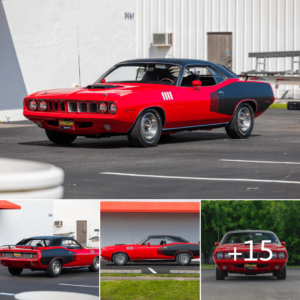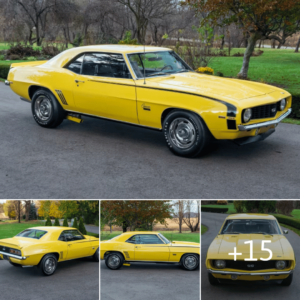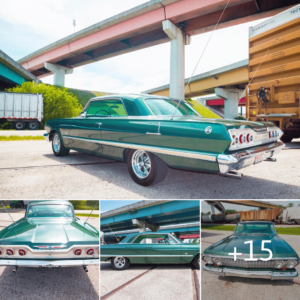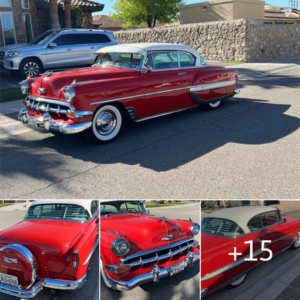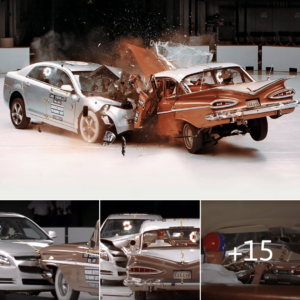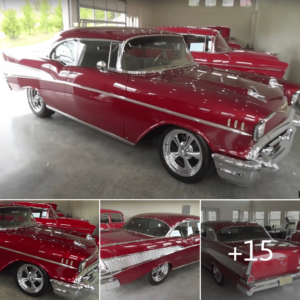The 1969 Ford Mustang Boss 302 is not just a classic muscle car; it’s an automotive legend that has captured the hearts of enthusiasts for decades. With its compelling combination of sporty aesthetics, upgraded performance, and rarity, the Boss 302 has stood the test of time as a truly iconic vehicle. In this review, we’ll delve into the timeless appeal of this extraordinary machine, exploring its history, unique features, and the meticulous restoration that has kept it in pristine condition. Buckle up as we take a journey through automotive history and uncover the allure of the 1969 Ford Mustang Boss 302.
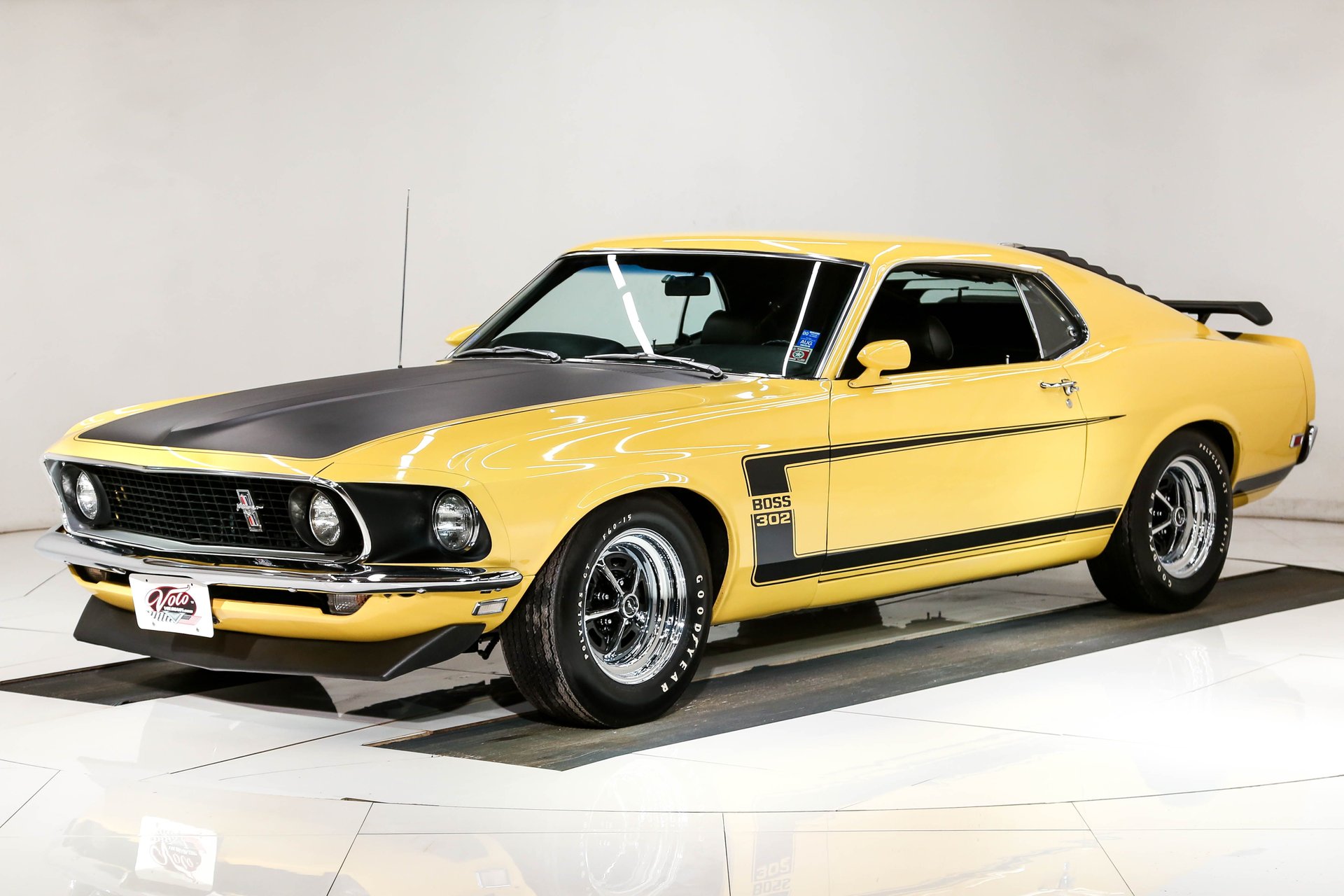
A Championship-Winning Heritage
The Boss 302 was born for Trans Am racing, a purpose that adds an aura of power and competitiveness to this classic muscle car. When it was first introduced, its sporty looks and dominating performance on the track immediately made it a sought-after gem. Ford designed this vehicle to compete fiercely with its arch-rival, Chevrolet, and successfully snatched the Trans Am championship title. The legacy of its triumphs on the racetracks has only added to its desirability over time.
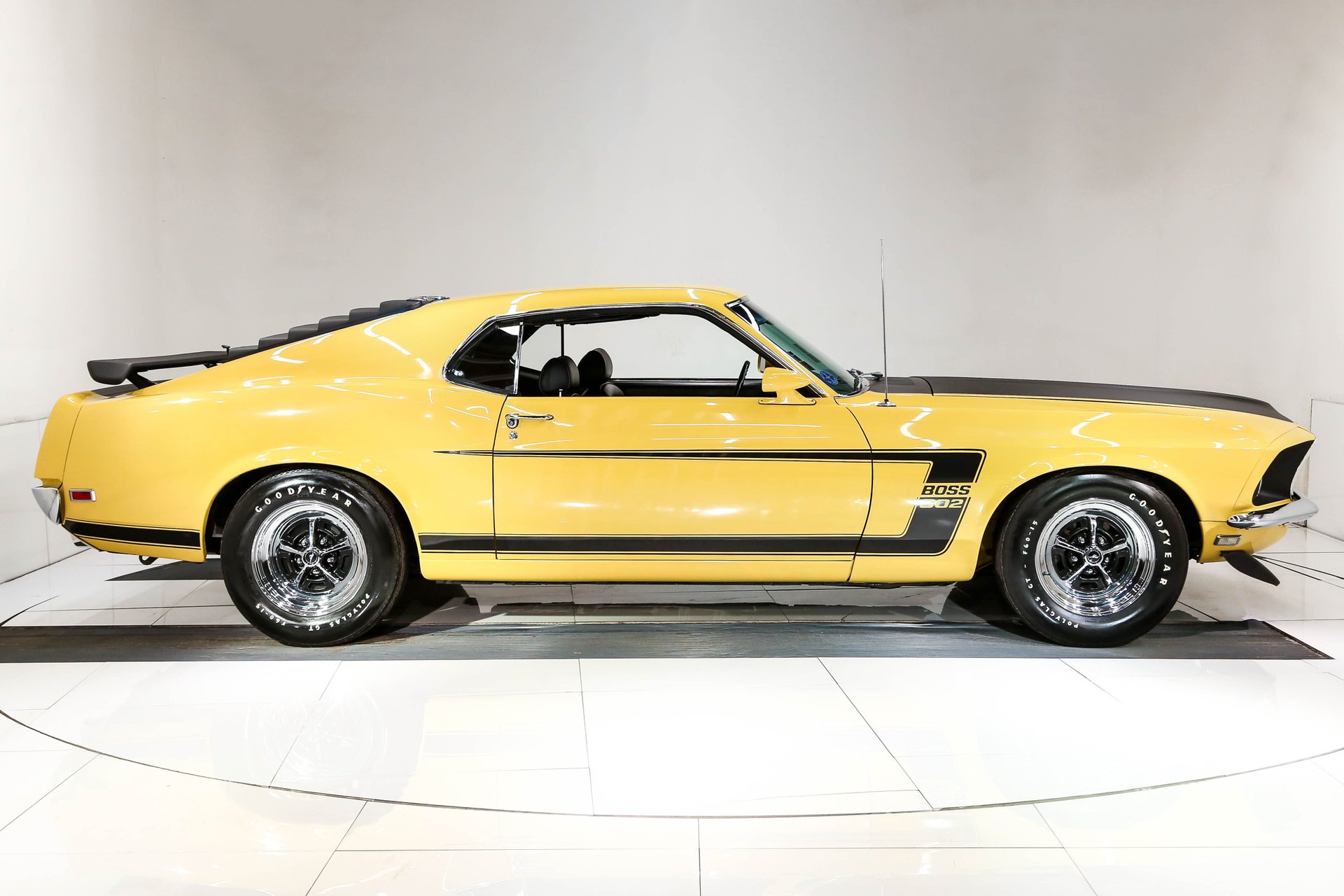
A Powerhouse Engine with Precision Handling
At the heart of the Boss 302 lies its performance-built motor, a powerful 4-bolt main Windsor block with enormous Cleveland heads featuring substantial ports and valves. With its solid lifter cam and other specialized components, this engine was a marvel of engineering, designed for high-speed thrills and outstanding performance. Paired with a 4-speed manual transmission, the Boss 302 delivered raw power to the pavement.
The upgrades didn’t stop at the engine; Ford equipped each Boss 302 with improved handling, brakes, exhaust, wheels, and tires, making it a true driving enthusiast’s dream. The result was a perfectly balanced machine that could handle the most challenging roads with ease.
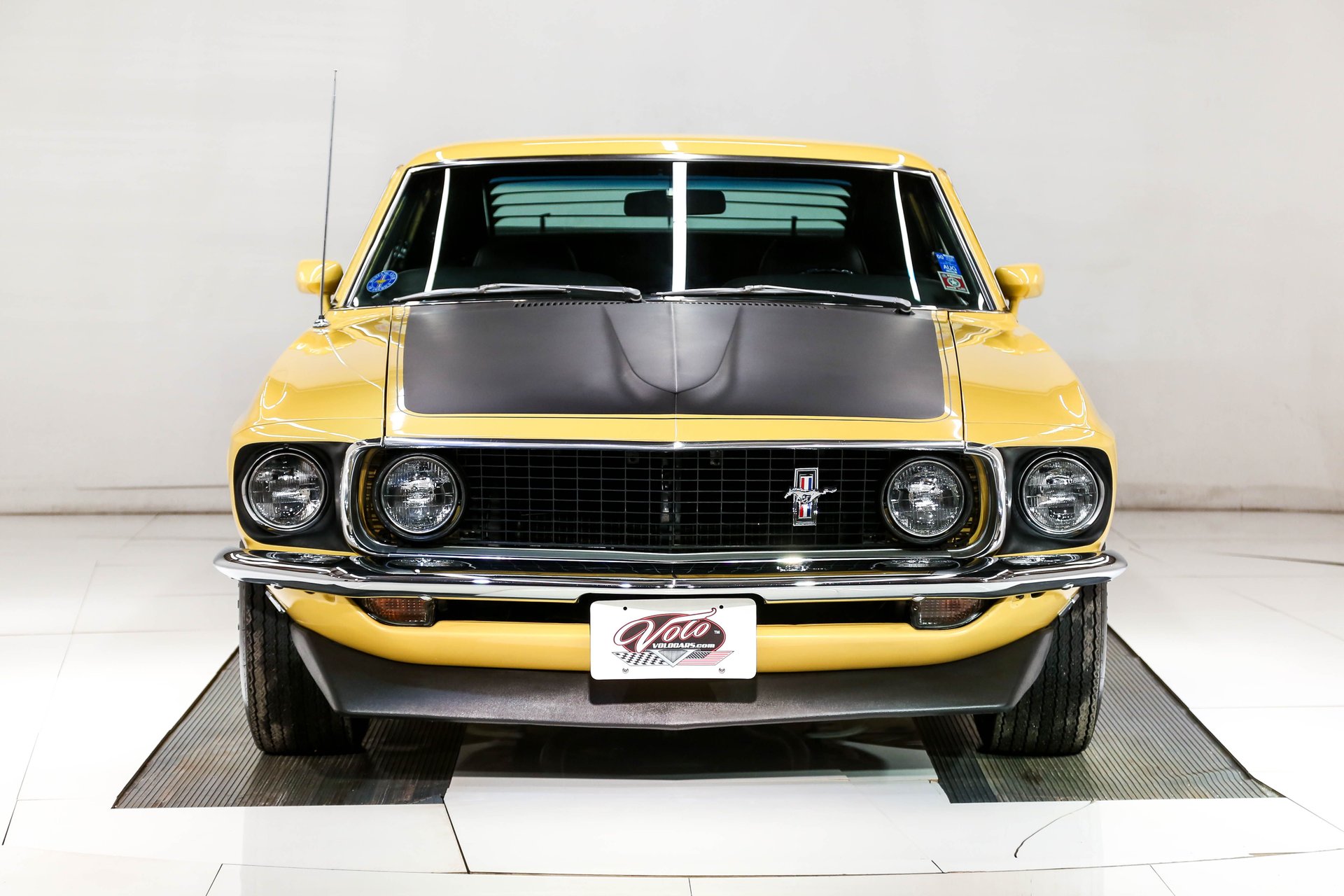
Exterior: A Timeless Beauty
The Boss 302’s exterior remains a testament to its timeless design. The body is flawlessly restored, boasting impeccable straightness and precise gaps. One unique feature is the front wheel well lips, which were folded in exclusively for the Boss 302 to accommodate its 15-inch wheels. Originally available in just four colors, this particular specimen has been repainted to its original Bright Yellow hue, maintaining its classic appearance with a smooth and glossy finish.
The Boss 302’s sporty aesthetics are enhanced by its blacked-out hood, trunk lid, tail panel, and headlight buckets, along with reflective stripes, sport mirrors, and a front spoiler. This model even features the optional rear spoiler, making it a rare gem with period-correct louvers and chrome accents that gleam like new. The addition of Magnum wheels and reproduction Polyglass GT tires completes the picture, adding both style and substance to this automotive masterpiece.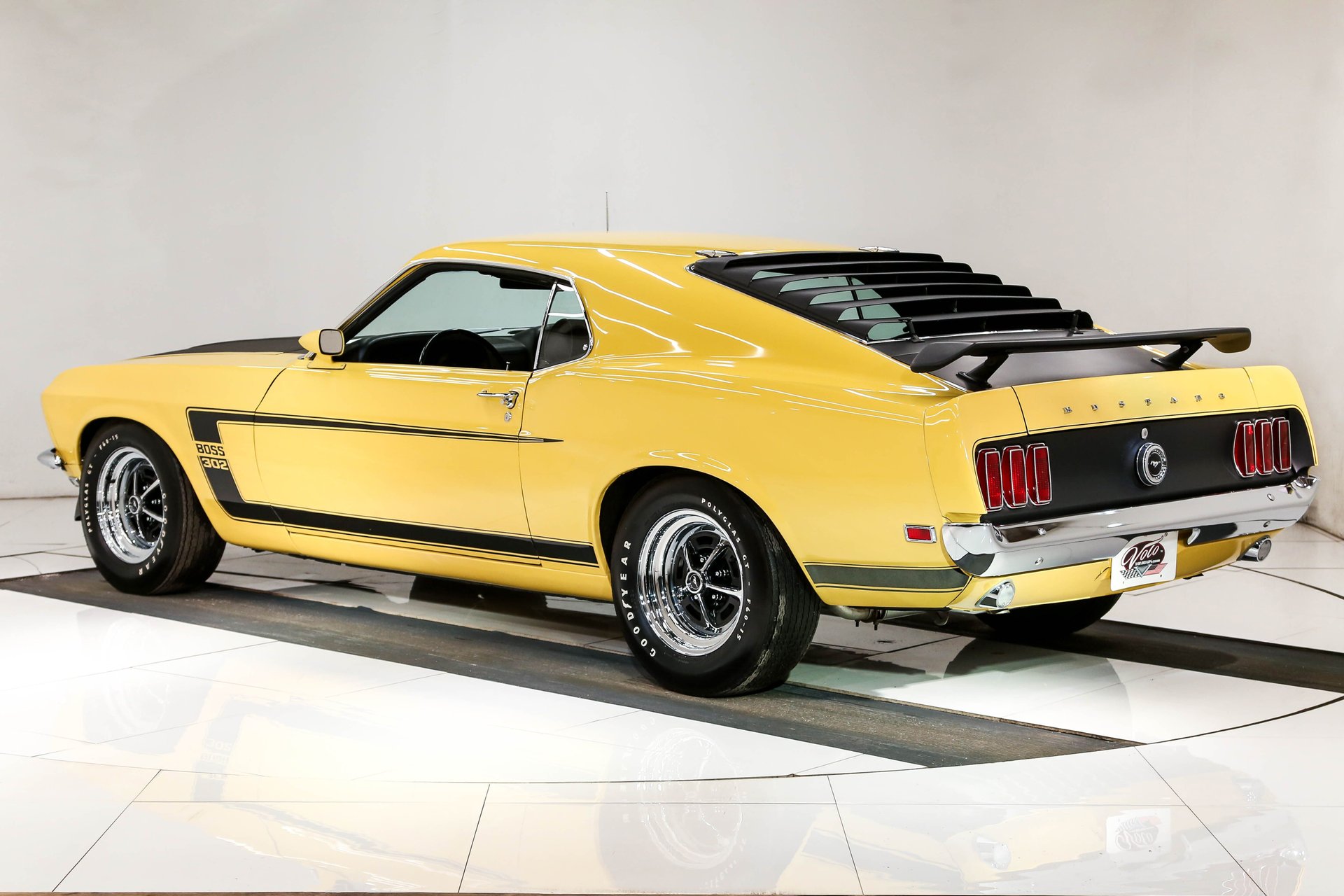
Interior: A Perfect Fusion of Style and Comfort
Step inside the Boss 302, and you’ll be greeted by an interior that exudes excellence and attention to detail. The upholstery and cushions remain in remarkable condition, while the dash pad and instrument panel look as though untouched by time. Complete with a factory tachometer and all the knobs, bezels, and controls in pristine condition, the interior of this Boss 302 is a testament to Ford’s commitment to quality.
The door panels, armrests, handles, and plastic trim pieces are equally well-preserved, showcasing the enduring craftsmanship of the era. Not a hint of abuse can be found in this lovingly maintained classic, and all the interior lights work, adding to its appeal as a genuine piece of automotive history.
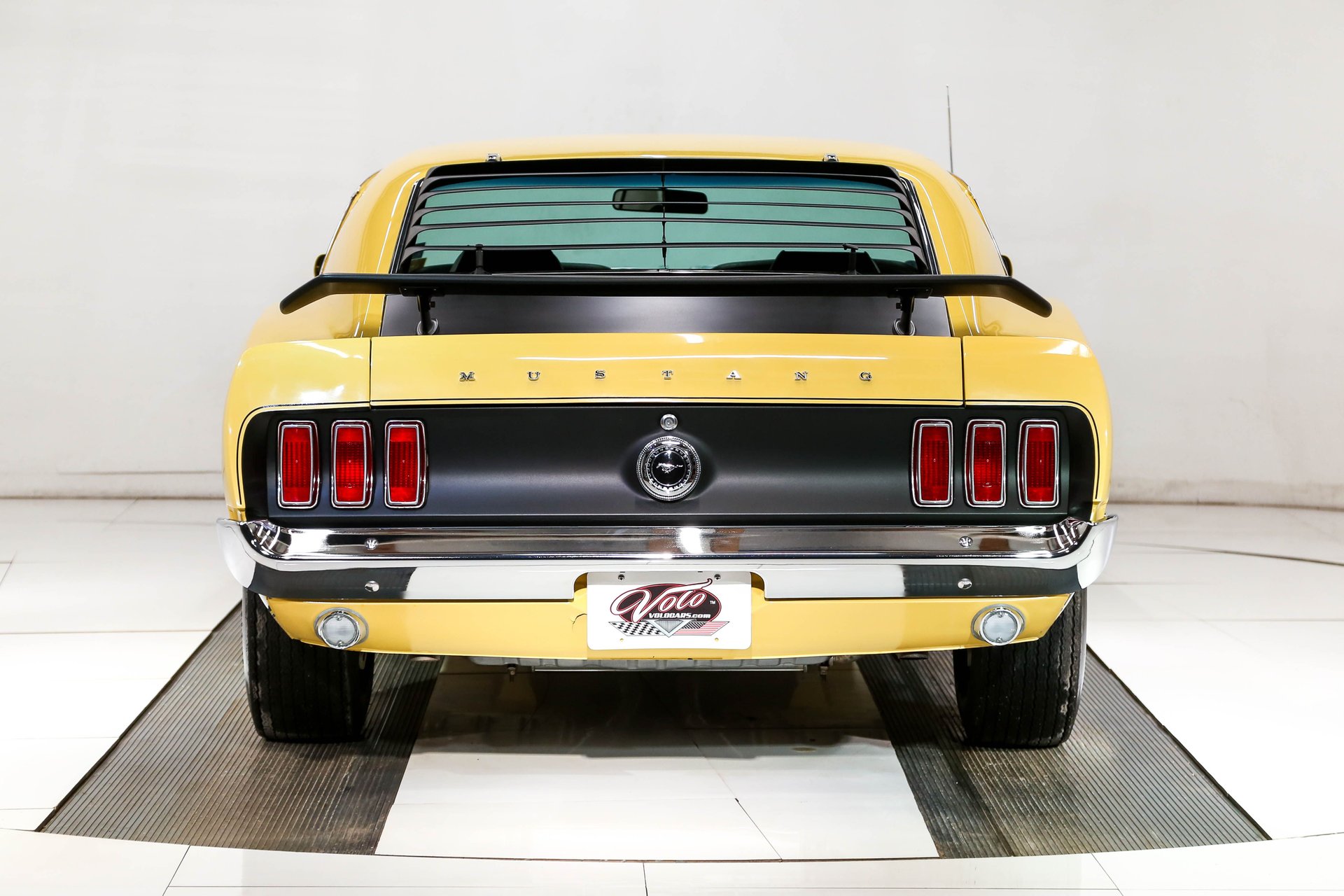
Engine Compartment: Restored to Perfection
The engine compartment of this Boss 302 has undergone a meticulous concourse restoration, bringing it back to factory specifications. The correct casting code C8FE 6015 B and matching VIN on the block verify the authenticity of the motor, while the 780 Holley carburetor, with its matching serial number, further accentuates the car’s pedigree.
The unique motor features a combination of a stronger 4-bolt main Windsor block and massive Cleveland heads, along with a solid lifter cam and other performance-enhancing elements. Restored to its former glory, the engine compartment boasts smooth paint finishes and perfectly clean metal, adorned with the appropriate stickers, markings, and tags, a testament to the dedication of the restoration team.
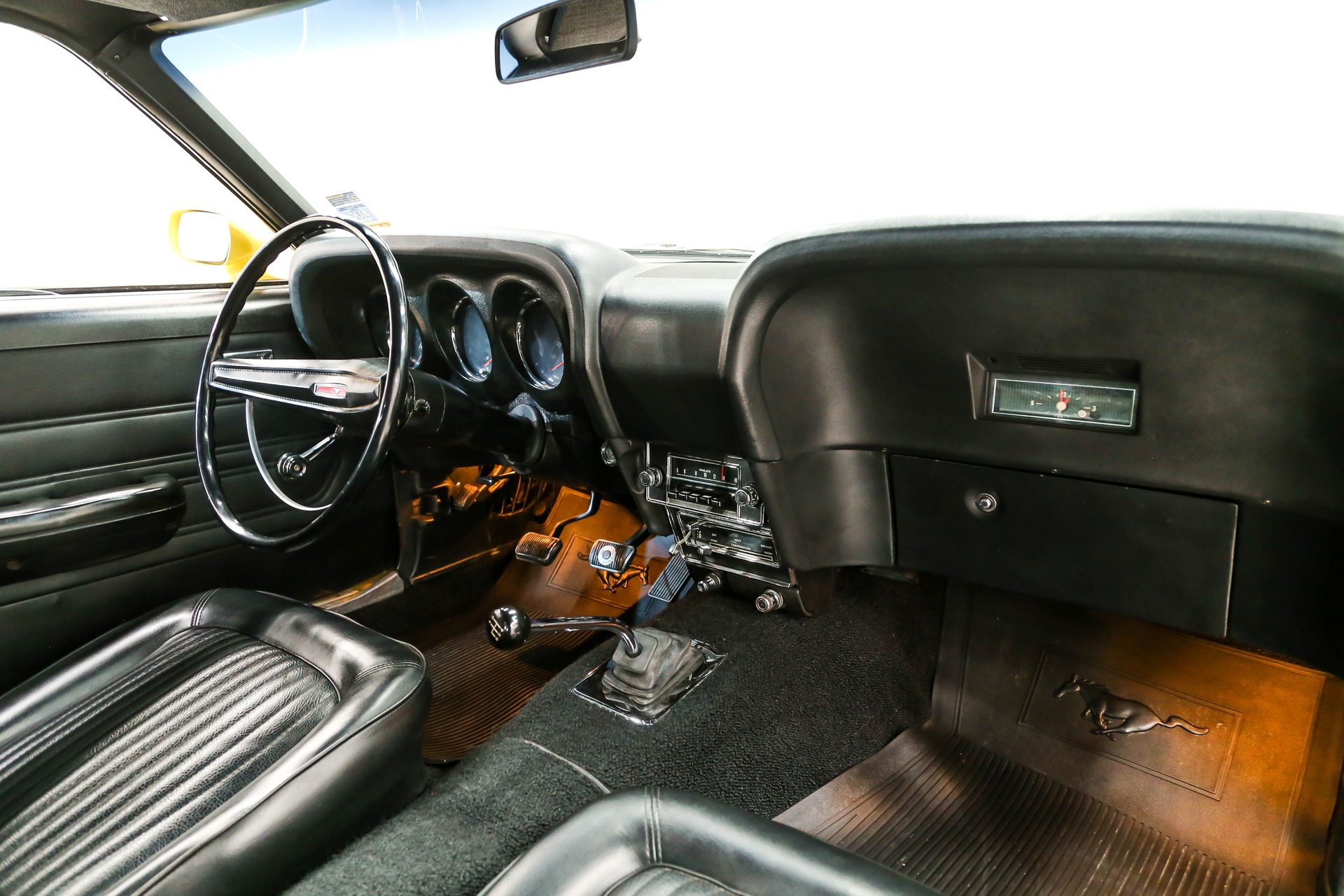
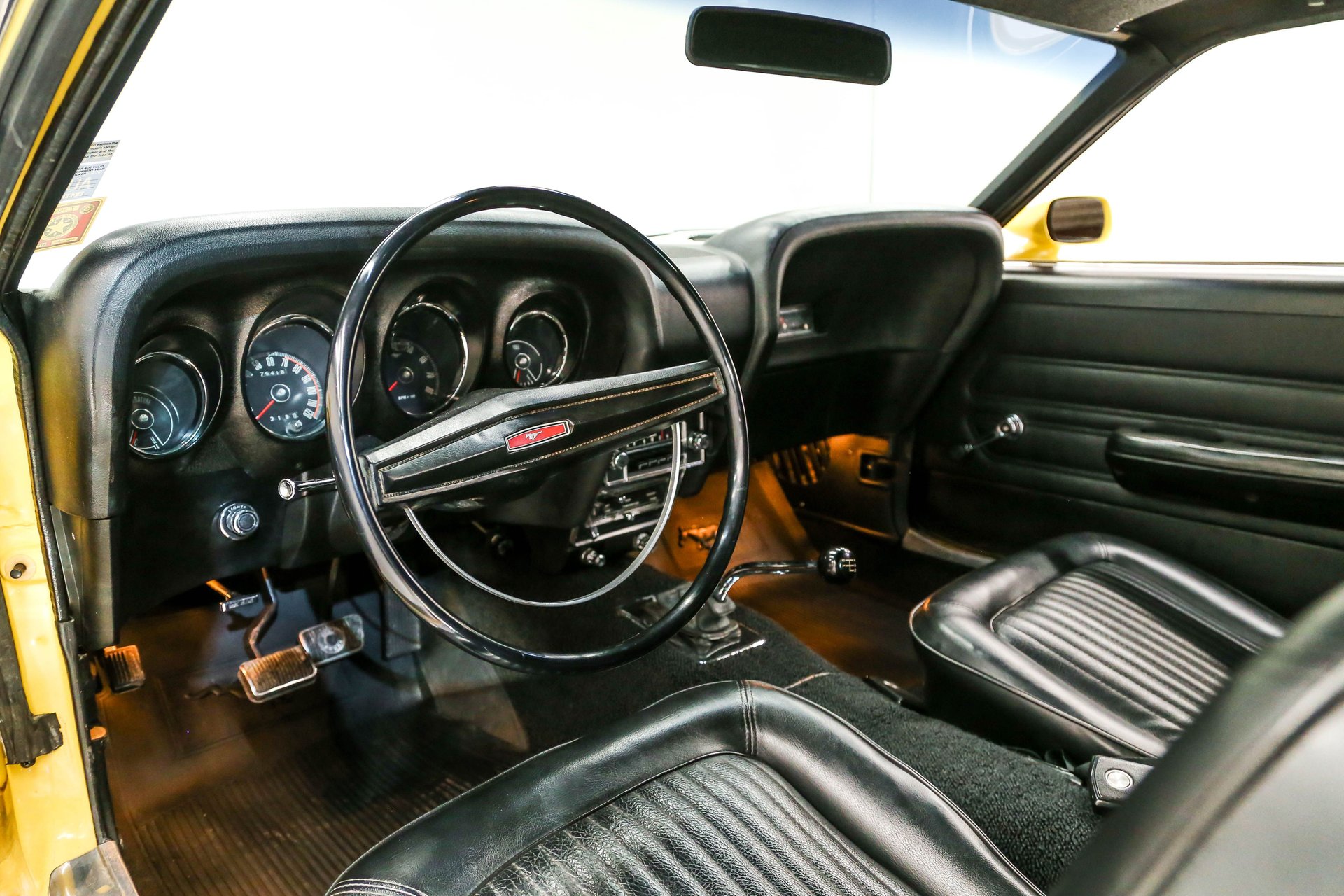
Trunk Compartment: Pristine and Complete
Like the rest of the vehicle, the trunk compartment has been treated to a meticulous restoration, leaving it clean and painted in the same eye-catching yellow color. Equipped with a space-saver spare tire and correct jack, this compartment retains its authenticity. The excellent mat and weatherstrip ensure that this area of the car is as well-preserved as the rest.
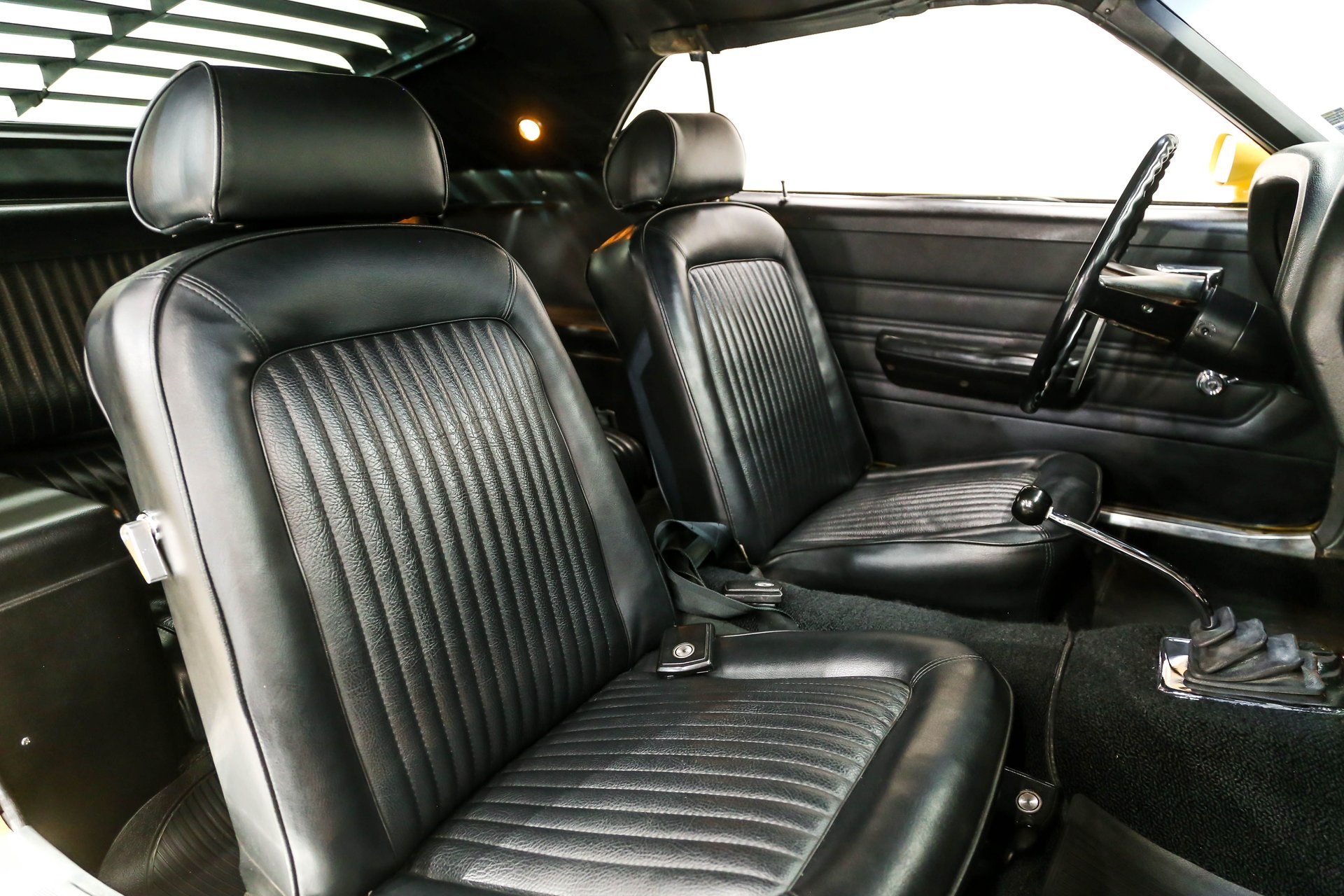
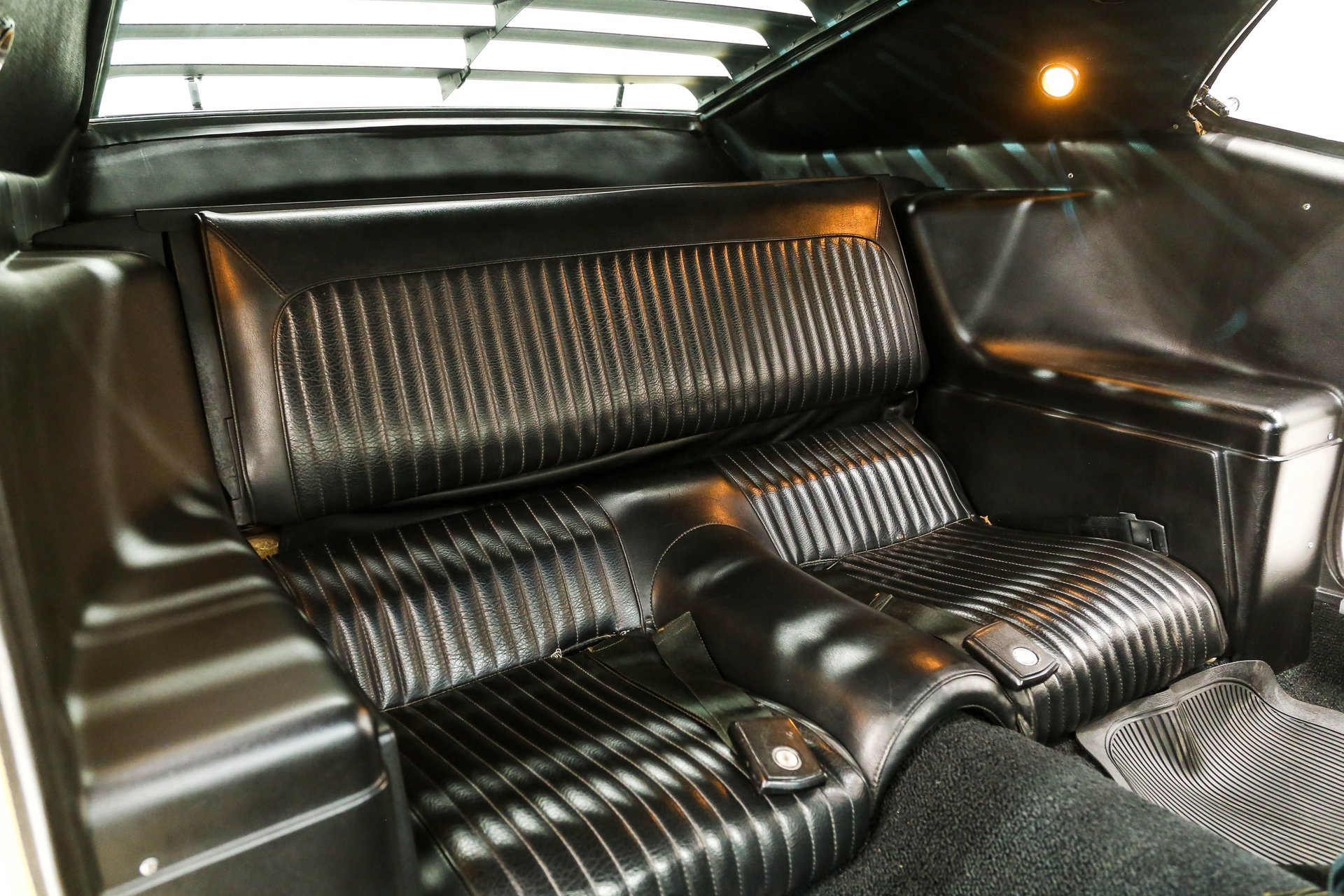
Underside: A Study in Automotive Perfection
The restoration efforts extended to the underside of the Boss 302, ensuring that every component down to the smallest bushing and hardware line has been either restored or replaced. Clean floors, immaculate frame rails, and factory spot welds demonstrate the dedication to authenticity that drives this restoration. The correct primer application and yellow overspray from the body showcase the attention to detail that goes beyond what the eye can see.
The steering and suspension have been completely rebuilt, adhering to factory specifications, and the exhaust system has been replaced with the correct transverse muffler. Additionally, the fuel and brake systems have been meticulously restored, with disc brakes in the front ensuring reliable stopping power. In short, this Boss 302 is a show-stopping example of automotive perfection.
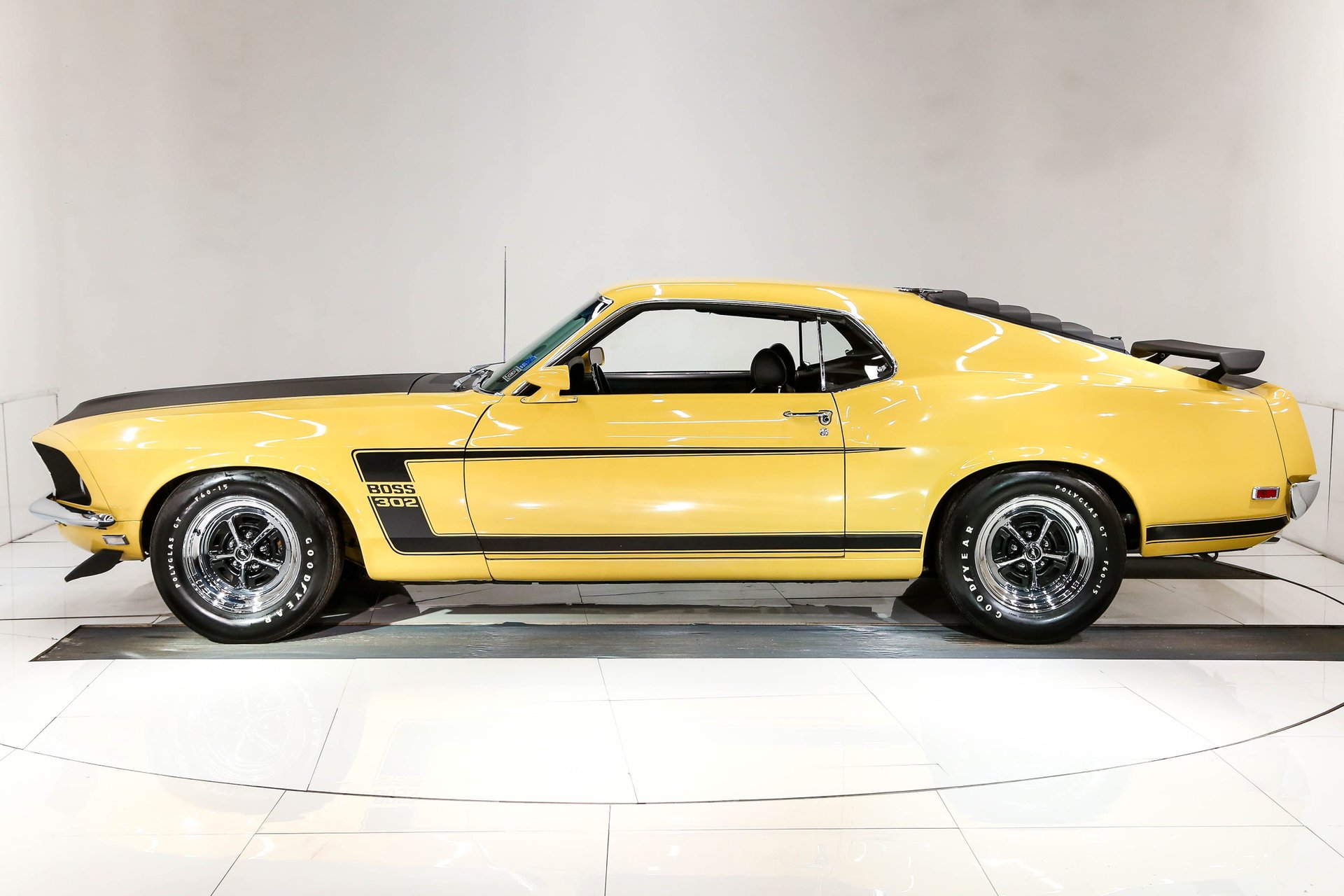
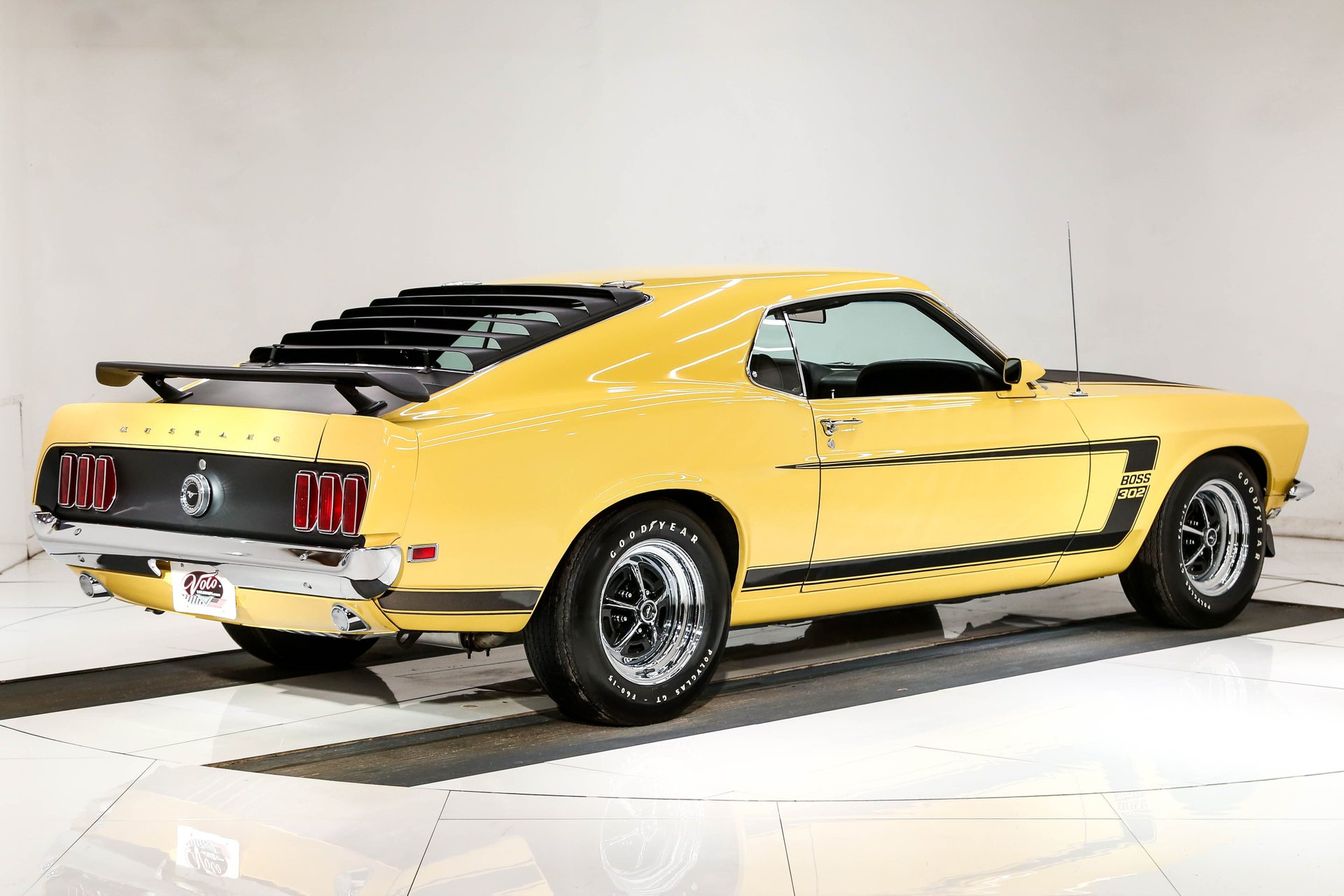
Frequently Asked Questions
- How many 1969 Ford Mustang Boss 302s were produced?
- Only 1,628 Boss 302s were made in 1969, making them an exceptionally rare find today.
- What sets the Boss 302 apart from other muscle cars of its era?
- The Boss 302 was purpose-built for Trans Am racing, boasting a powerful engine and performance-focused upgrades that set it apart from the competition.
- What colors were available for the 1969 Boss 302?
- Ford offered the Boss 302 in four colors: Bright Yellow, Calypso Coral, Wimbledon White, and Raven Black.
- Is this particular Boss 302 an original matching numbers car?
- Yes, this Boss 302 is concourse restored with VIN-matching original motor, build sheet, and original invoice, making it a highly desirable and authentic classic.
- What made the Boss 302 successful in Trans Am racing?
- The combination of its powerful motor, precise handling, and top-tier performance upgrades helped the Boss 302 claim victory in Trans Am racing, securing its place in automotive history.
In conclusion, the 1969 Ford Mustang Boss 302 is a symbol of automotive excellence, cherished by enthusiasts and collectors alike. Its captivating design, exceptional performance, and rarity have solidified its place as a true automotive legend. Meticulously restored and boasting a rich history, this Boss 302 is not just a classic car; it’s a piece of American automotive heritage that continues to captivate and inspire generations of automotive enthusiasts.
